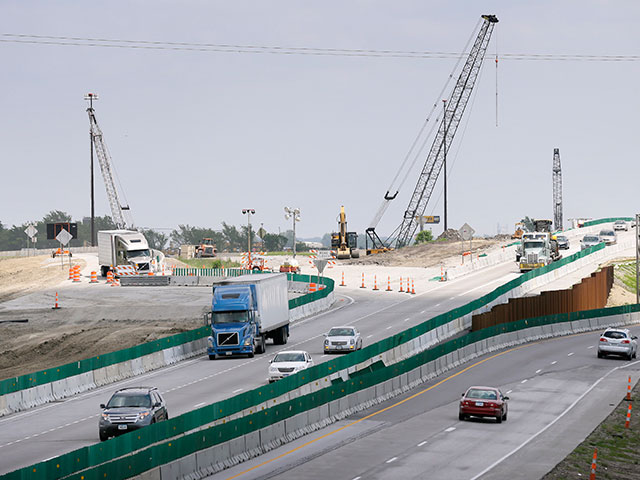As Congress prepared to reauthorize federal transportation programs, they are grappling with the predictable problem of plugging the $15 billion annual shortfall in the Highway Trust Fund. Not surprisingly, both parties are prepared to double down on the failed federal transportation system.
Twenty-one years after the completion of the interstate highway system, the special interests in both parties still believe we should continue running the transportation policy of all fifty states from Washington. Despite the fact that each state has a unique geography, topography, and population density, they must rely on K Street lobbyists for their transportation needs. Obviously, such an inefficient infrastructure policy has engendered so much waste that the politicians are always looking to increase taxes in order to keep up with the quicksand of federal transportation policy. For example, the Chamber of Commerce and the labor unions want to increase the federal gas tax, while others are conjuring up more pernicious tax schemes to pay for the system.
House Transportation and Infrastructure Committee Chairman Rep. Bill Shuster (R-PA) has expressed openness to pushing a “vehicle mileage tax” to plug the endless funding gap created by environmental and labor regulations, as well as the inherent inefficiency of running something like transportation of 50 states from the nation’s capital.
Aside from the obvious problem of opening a new stream of federal taxation to grow government, a vehicle mileage tax would represent one of the most egregious invasions of privacy. Americans cherish the freedom of car ownership and driving through this great vast country without being tracked by Washington bureaucrats. With all of the environmentalists chomping at the bit to limit or regulate our driving, one can only imagine the temptation such a tracking device would provide to liberals.
Another problem with the federal transportation policy is that it has served as the impetus for earmarking, which in turn, has greased the skids for passage of bad legislation. Now that an earmark ban is in place, many members are complaining about their inability to secure their “fair share” of funding for local projects.
Moreover, a large portion of the transportation funds are consumed by federal mandates for wasteful projects, mass transit, Davis-Bacon union wages, and environmental regulations. Roughly, $10.5 billion in annual gas tax revenue is diverted from the highway spending to be used for mass transit. According to the Heritage Foundation, Davis Bacon prevailing wage mandates jack up the cost of construction projects by 22%. The cost of the environmental regulations are incalculable. It’s no wonder we are stuck with a failed system that leaves our infrastructure without proper funding and our taxpayers on the hook for more tax increases.
Finally, in their alacrity to gobble up the short-term money before it runs out, state and local governments tend to use the funds on small time and indivisible projects, such as incessant road repaving, instead of better planned long-term projects. The inefficiency of relying on the federal government for highway spending has made it harder to properly plan projects without needlessly creating traffic juggernauts.
The only way to improve our infrastructure, avoid tax increases, obviate the need for earmarks, and prevent wasteful and inefficient projects is to devolve the gas tax and the related responsibility for surface transportation to the 50 states, except for those projects that are national in scope and therefore germane to federal oversight and funding.
Senator Mike Lee (R-UT) and Rep. Tom Graves (R-GA) have introduced (S. 1702/ HR 3264) legislation to do just that. Each state would be responsible for its own projects, including maintenance for its share of the IHS. Free of the burden of shouldering special interest pork projects of other states, each state would levy its own state gas tax to purvey its own transportation needs. If a state wants a robust mass transit system or pervasive bike lanes, let the residents of that state decide whether they want to pay for it. That is true federalism in action.
Some Republicans are pushing sundry solutions, such as plugging the HTF deficit with savings from eliminating Saturday postal delivery or encouraging companies with foreign earnings to repatriate their revenue through tax deductions. Some of these proposals have merit as standalone initiatives, but should not be used to perpetuate the failed Washington-centric transportation policy.
It’s time we free the states and the citizens from the paralysis, waste, and fraud that is associated with the lobbyist-driven federal transportation policy. Like other federal policies, it has encumbered growth and development for far too long.

COMMENTS
Please let us know if you're having issues with commenting.